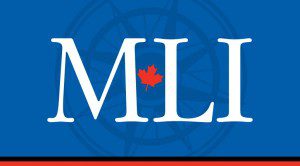 Sean Speer and Daniel Mahoney, writing in the Hill Times, urge the British government to keep on with fiscal reform rather than abandoning sensible choices for the sake of politics.
Sean Speer and Daniel Mahoney, writing in the Hill Times, urge the British government to keep on with fiscal reform rather than abandoning sensible choices for the sake of politics.
By Sean Speer and Daniel Mahoney, July 17, 2017
There’s been plenty of commentary about the causes of the United Kingdom’s unexpected election result.
Conservative Party complacency, a flap about its manifesto, the youth vote, and a post-Brexit political realignment have all been blamed for reducing the Conservatives to a parliamentary minority and in turn contributing to political uncertainty in the face of upcoming Brexit negotiations.
Recent speculation is that Prime Minister Theresa May has fingered another culprit for her political woes. So-called “austerity”—that is, the British government’s efforts to reduce its budgetary deficit and stabilize its debt levels—is apparently to blame. Word is now that the prime minister and her government will therefore bring “an end to austerity” and extend its deficit spending into the indeterminate future.
This would be a mistake. Not only are the U.K.’s public finances still in need of repair, recent efforts to control spending and reduce its budgetary deficit have been associated with a strong economic performance. Succumbing to anti-austerity calls would risk reversing the economic and fiscal progress that’s been made to date. It’s a major fiscal policy debate that Canadians ought to be following because it proffers lessons for us here.
It’s worth remembering that when the Conservative Party was first elected in 2010, the U.K.’s public finances were a mess. The country’s budgetary deficit was 150-billion pounds (or more than 10 per cent of GDP) in 2009-10 and more than 1-trillion pounds has been added to the national debt since 2005. Its public borrowing was near the highest in the G20 and the U.K.’s structural deficit was the largest among all OECD countries.
It’s a major fiscal policy debate that Canadians ought to be following because it proffers lessons for us here.
It’s no surprise therefore that the incoming chancellor of the exchequer was given a note by his predecessor that simply read “I’m afraid that there’s no money.” The need for fiscal reform was readily apparent.
The new government launched a sustained program of fiscal reform and deficit reduction. Most of these reforms were focused on controlling or reducing spending. Roughly 50 per cent of the early fiscal savings came from spending reforms rather than tax increases. This share has gradually increased to 75 per cent in recent years.
The upshot is that the U.K.’s fiscal reforms over the course of this decade are projected to comprise a 1.2 per cent net tax increase of national income and a net spending cut of 9.5 per cent. This is a substantial change from the previous decade when U.K. government spending rose from 34.5 per cent of GDP in 2000-01 to 47.7 per cent in 2009-10.
But it’s hardly radical austerity. Annual spending is to basically remain flat in real terms between 2011-12 and 2019-20, and spending as a share of GDP is to remain higher than it was in 2000. This isn’t austerity as much as it is the sensible management of public finances.
And what’s been the result of these fiscal reforms? Not the doom and gloom anticipated by many voices, including from the International Monetary Fund, which initially decried the government’s plan as “playing with fire.”
Instead the U.K.’s deficit-to-GDP ratio has fallen by roughly two-thirds, the economy has been one of the fastest growing of the advanced economies for the past three years, and its unemployment rate is one of the lowest in Europe. Fiscal reform is paying economic dividends—including significant job gains in the private sector.
It’s not to say that the U.K.’s fiscal reforms are perfect. Ring-fencing certain spending areas such as international development and pensions have placed disproportionate strain on other government spending. Welfare reforms have been clumsily implemented. Decisions to scale back fiscal reform were already beginning to appear prior to the recent election.
Fiscal reform is paying economic dividends—including significant job gains in the private sector.
But the U.K.’s experience with fiscal reform has been generally positive. Abandoning these efforts now would not only reverse the progress that’s been made, it may erode the country’s economic credibility, undermine confidence, and raise its borrowing costs.
This debate matters for Canadians. The Justin Trudeau government has moved in an opposite direction from its U.K. counterpart and has little to show for it, save for protracted deficit spending and rising federal debt.
The key takeaway from the U.K. is that sensible, well-designed fiscal reform can help rather than hinder the economy. It’s a lesson that both prime ministers May and Trudeau need to be reminded of.
Sean Speer is a Munk senior fellow at the Macdonald-Laurier Institute. Daniel Mahoney is deputy director and head of economic research at the Centre for Policy Studies in the United Kingdom.





